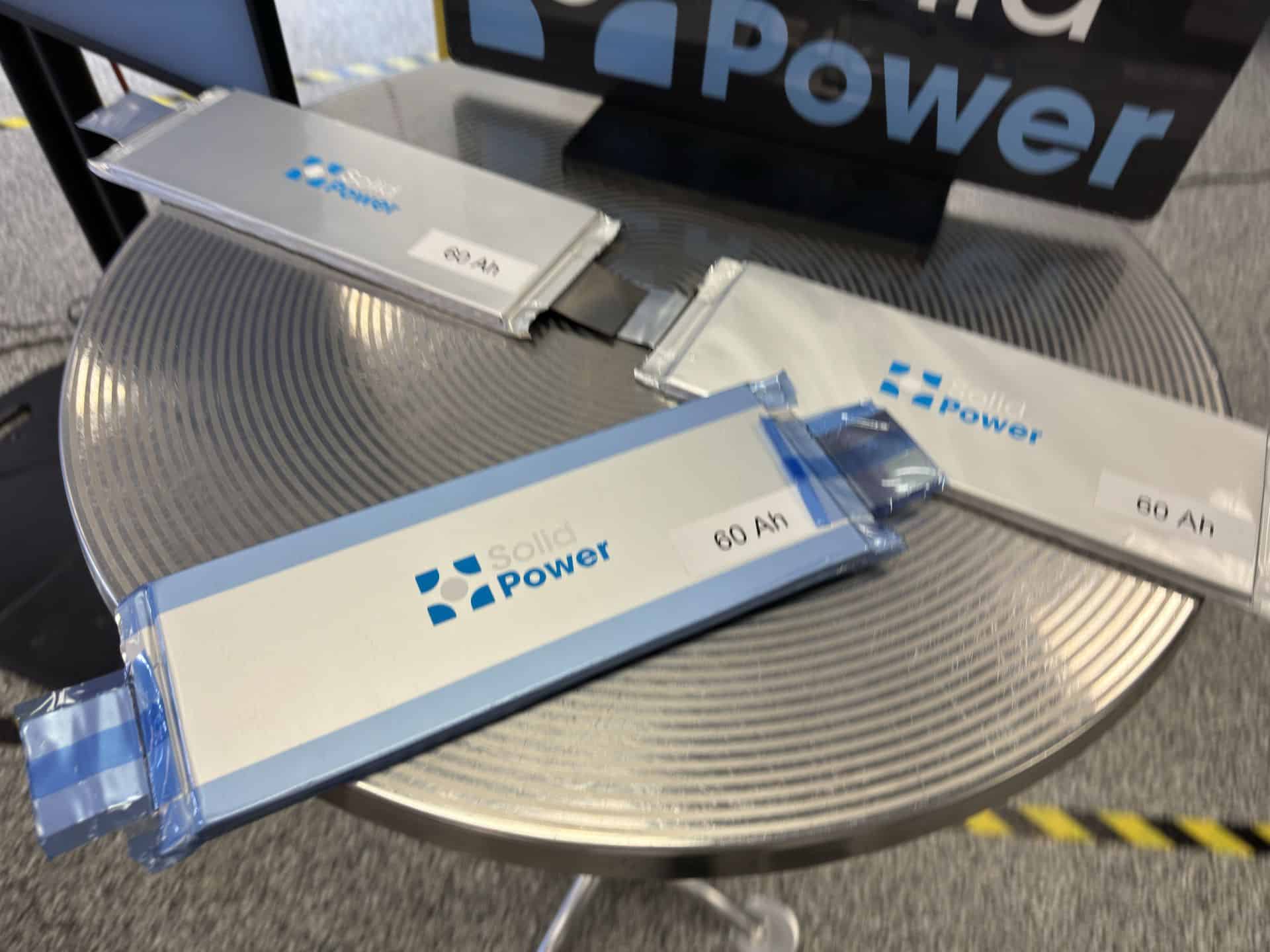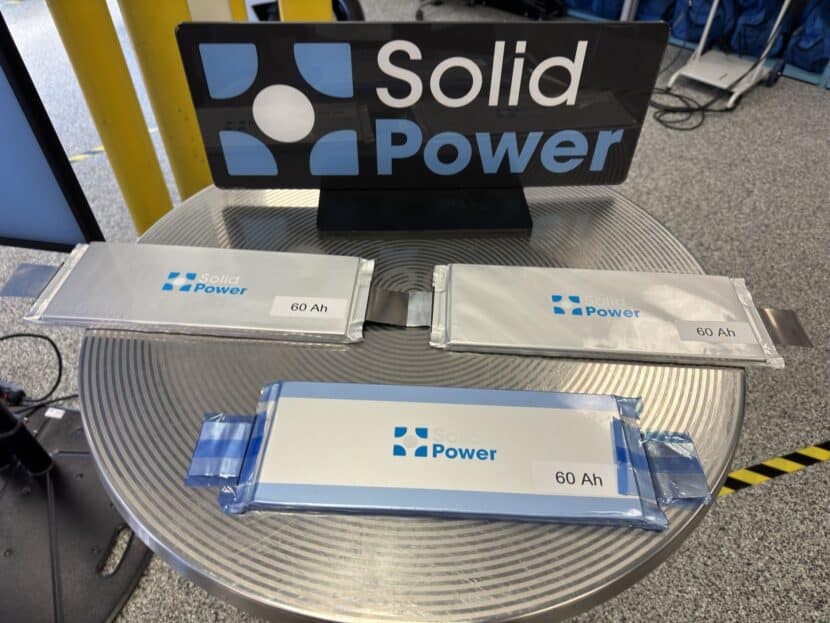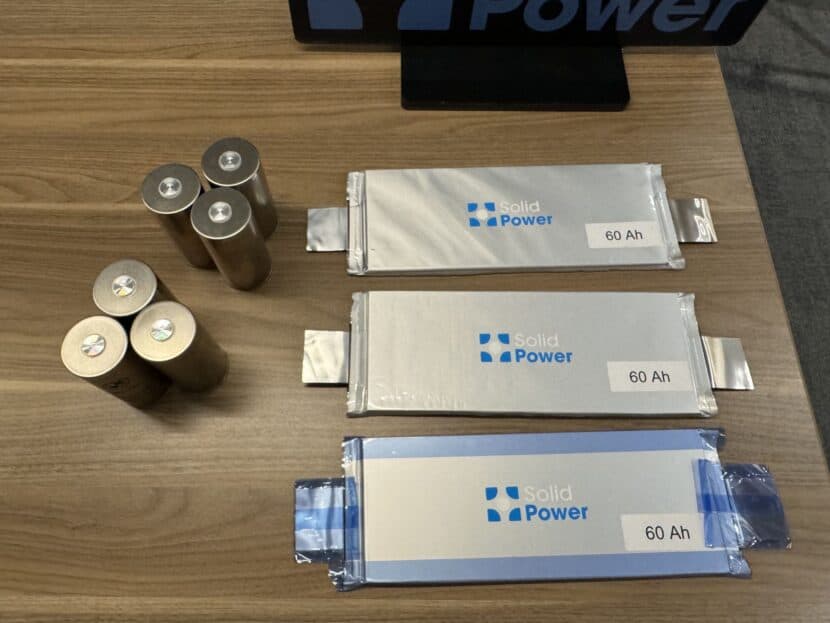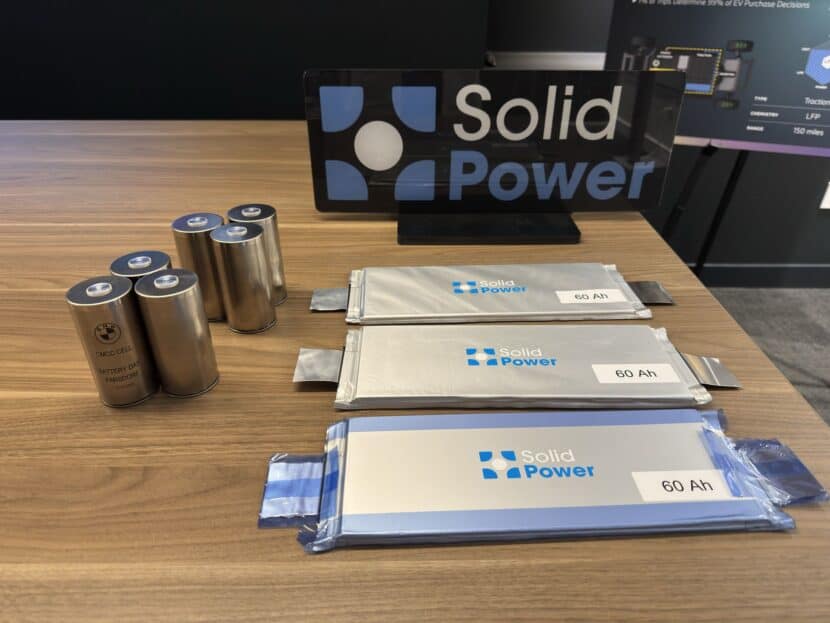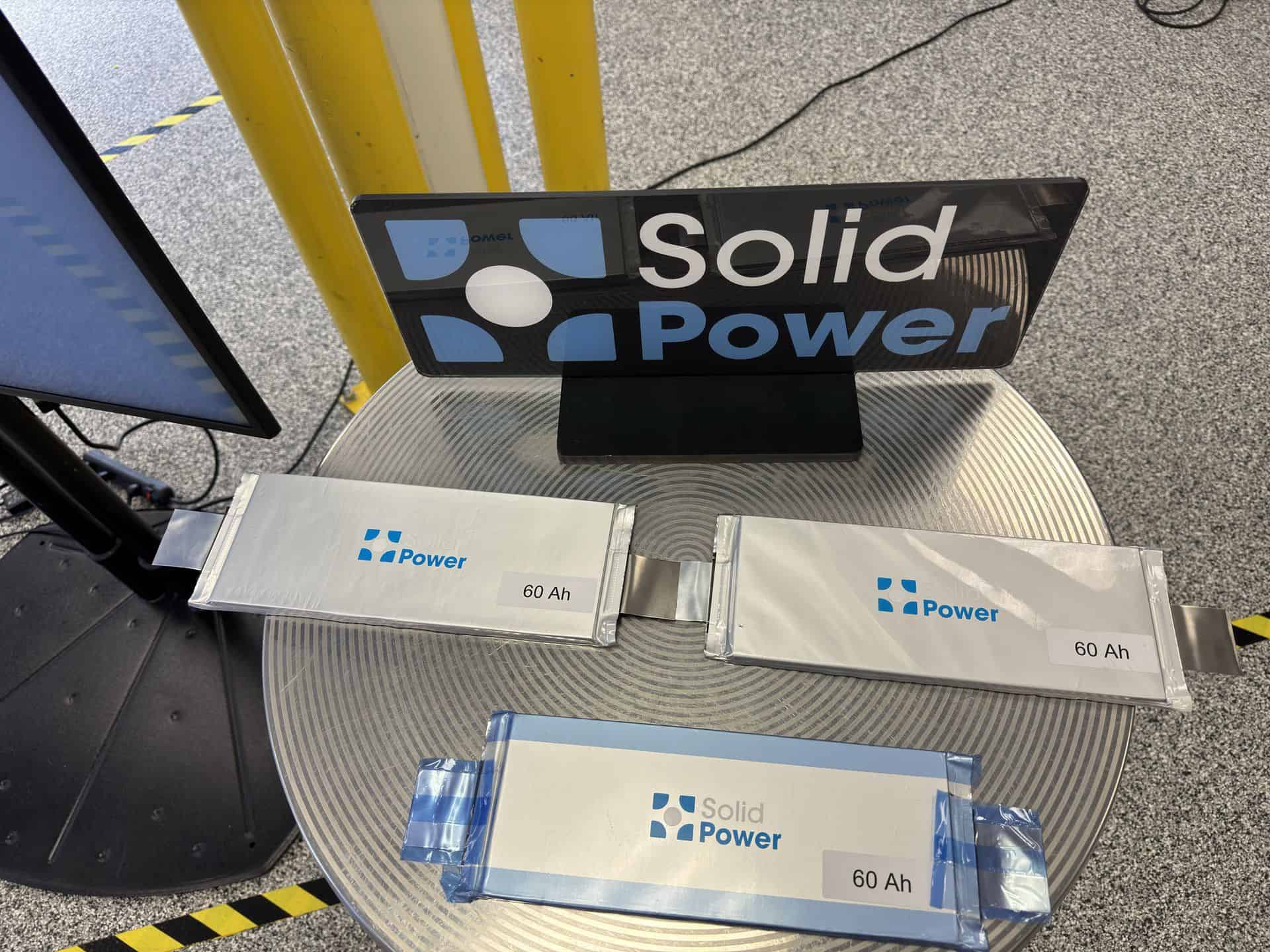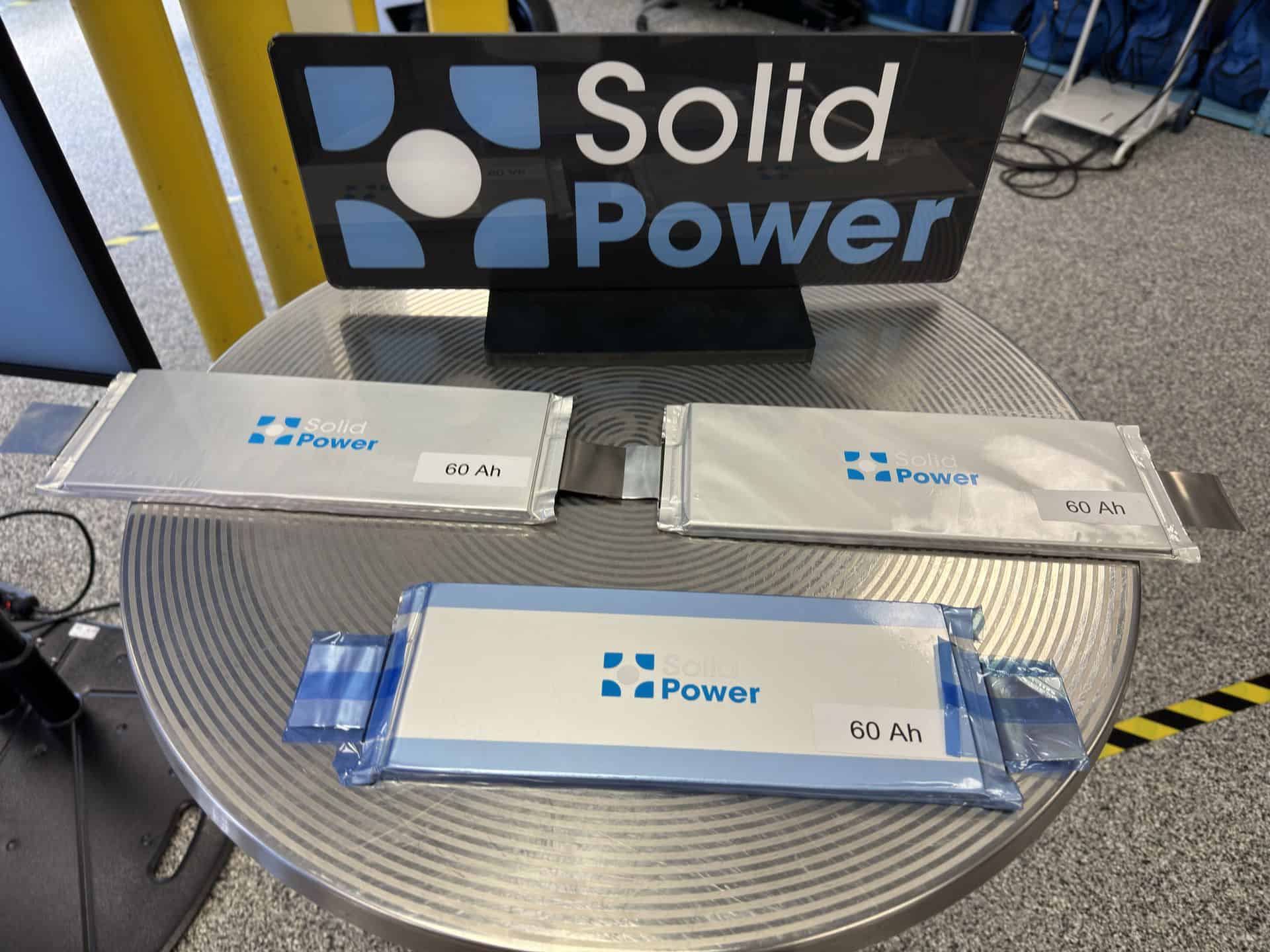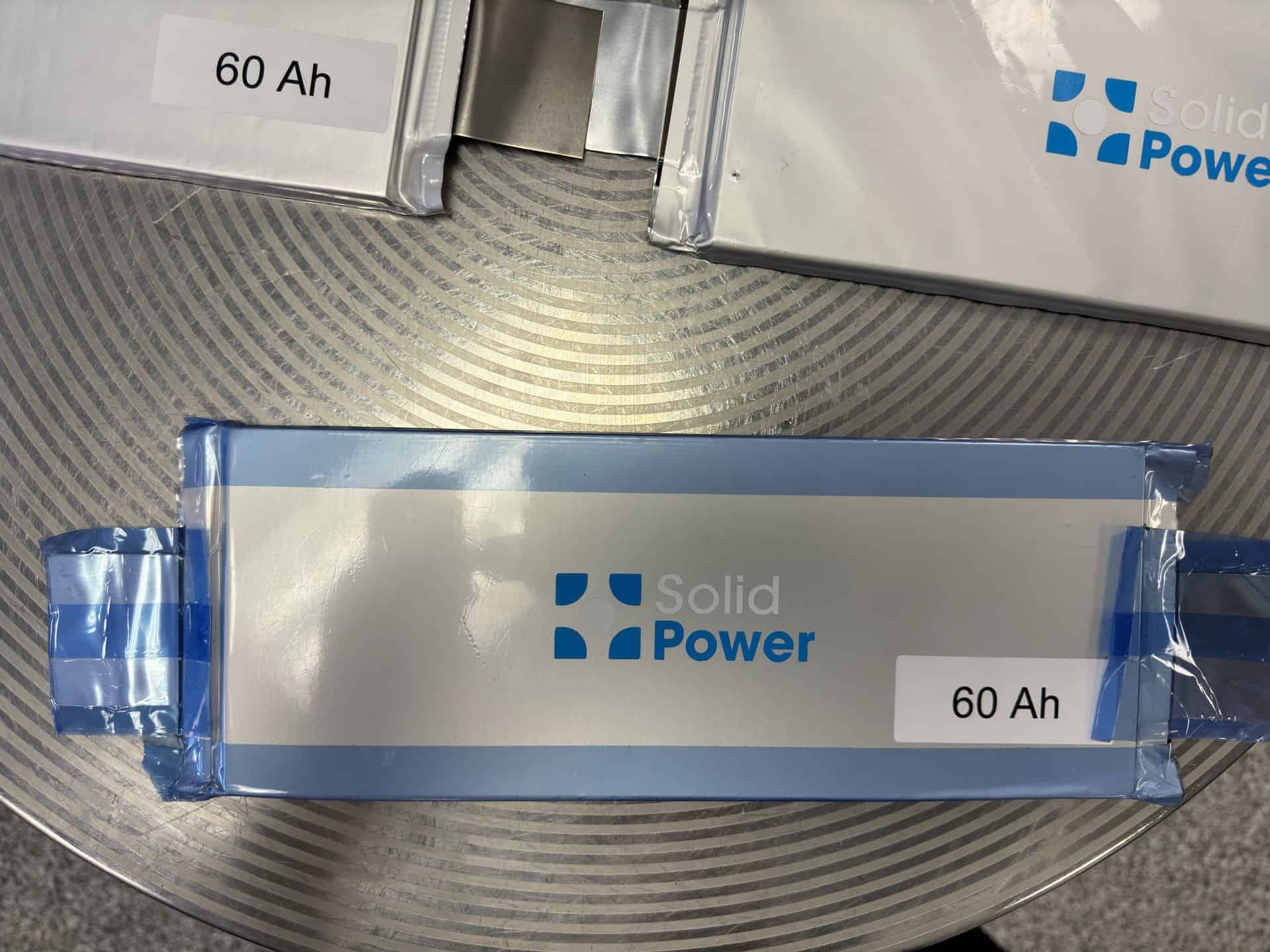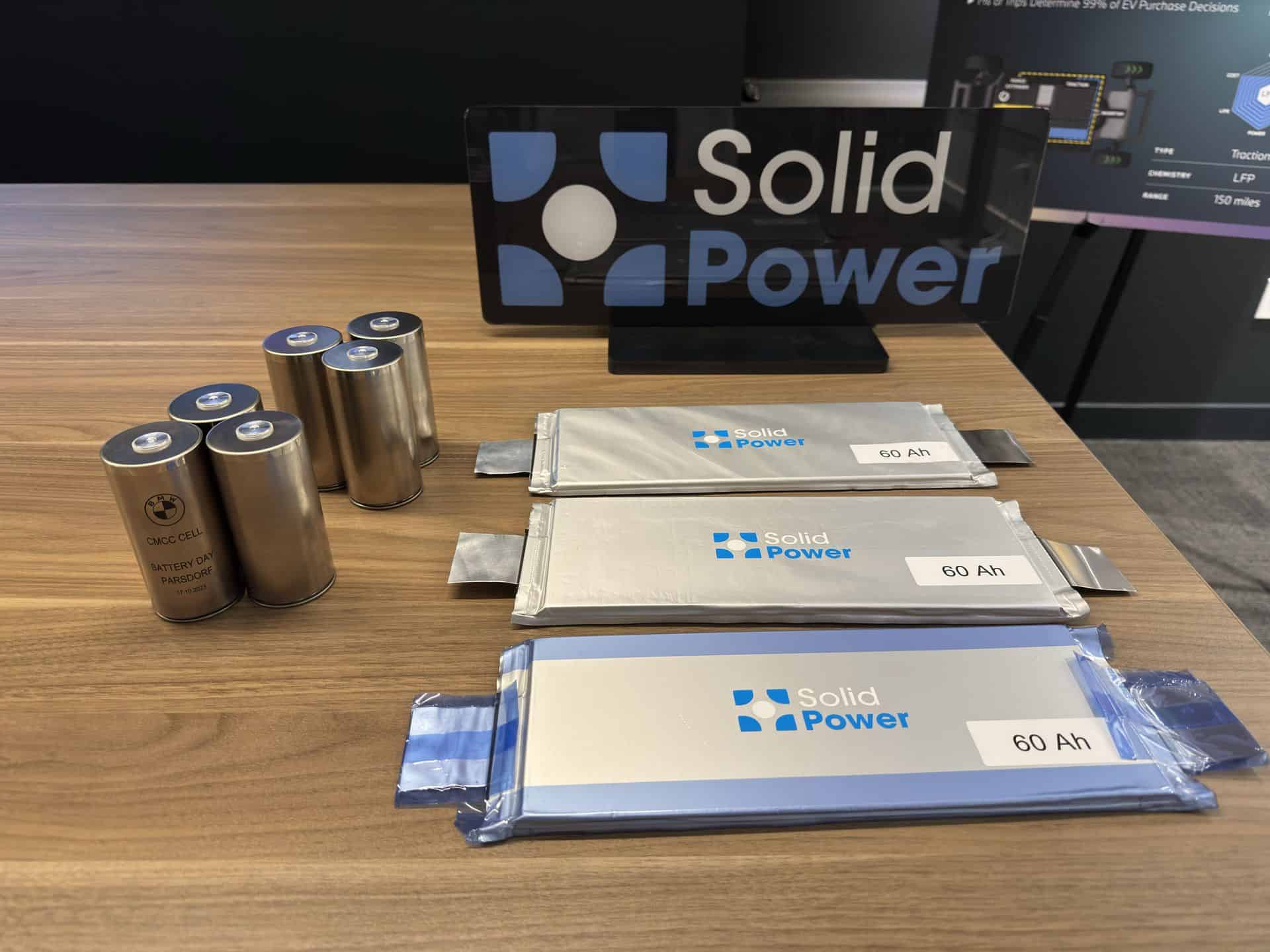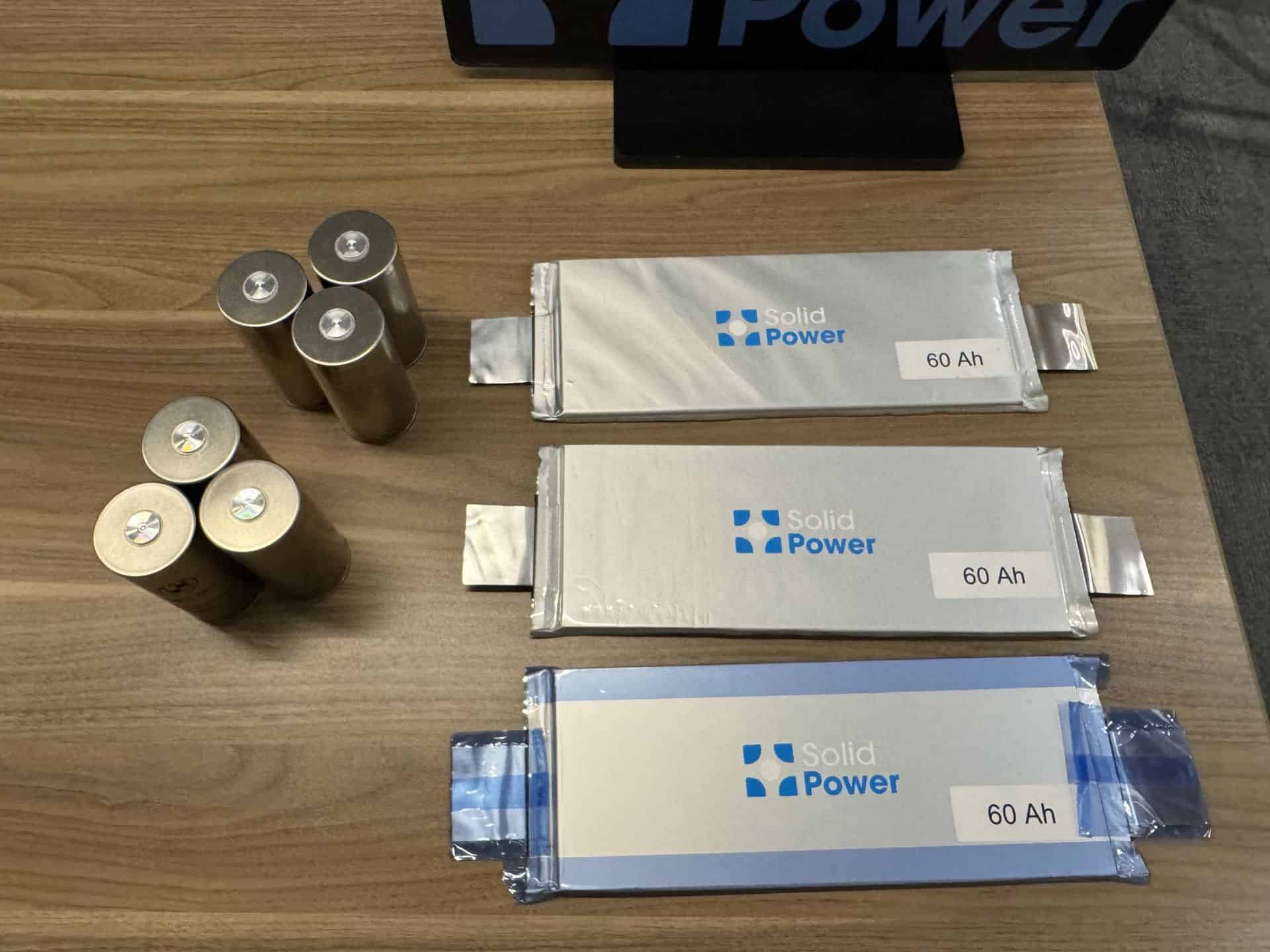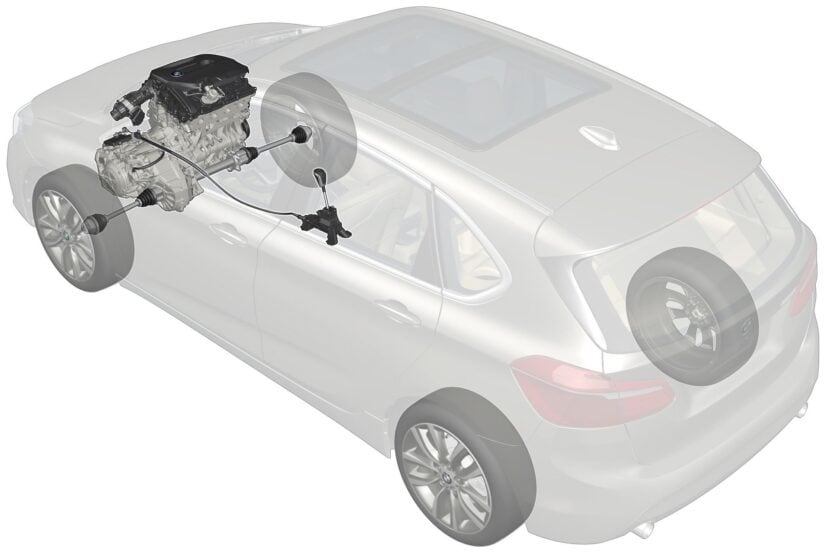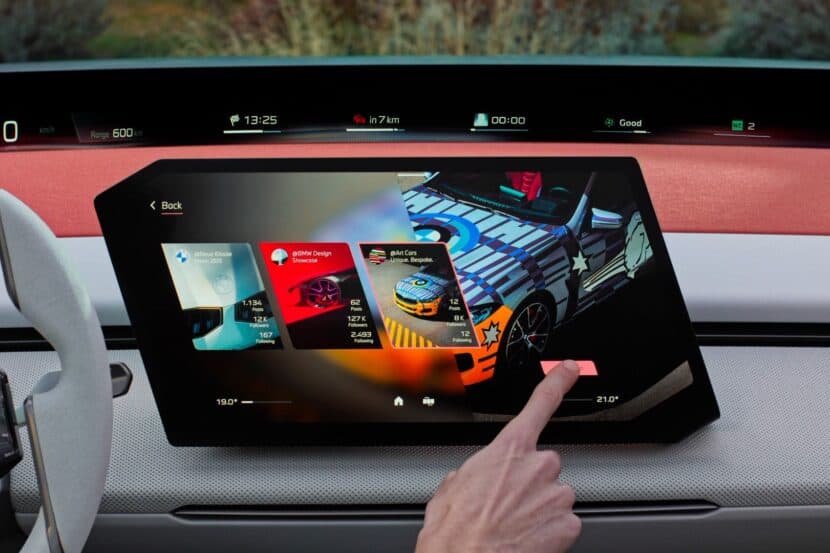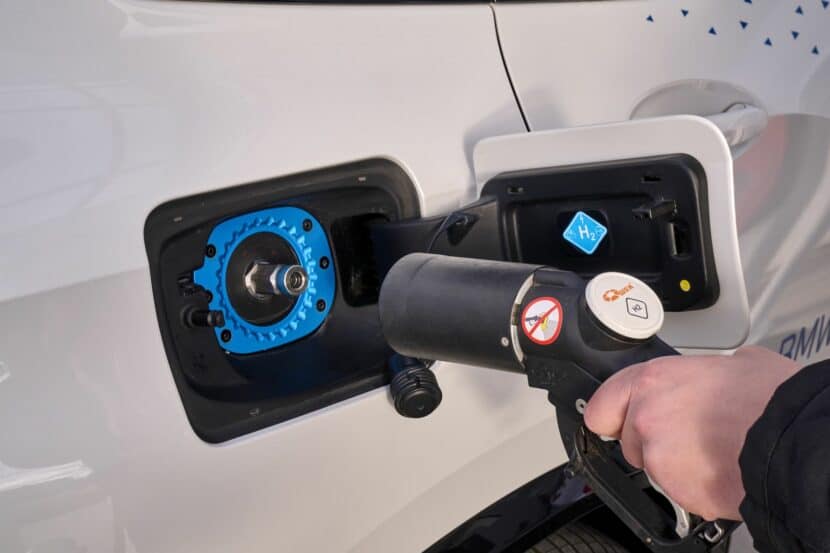Celebrating the 25th anniversary of the BMW Tech Office in Silicon Valley this week, the Bavarians provided a glimpse into their latest battery advancements. In addition to offering a sneak peek into the upcoming next-generation Neue Klasse models featuring cylindrical batteries, BMW delved into an extensive discussion on the strides they are making in the development of solid-state cells.
Back in November, BMW received the first A-samples of the solid-state cells from Solid Power and we had a chance to see them upclose. Solid-state batteries are touted as being far superior to lithium-ion batteries thanks to a lighter construction and a smaller size. In addition, these have a much higher energy density to deliver a vastly improved range while supporting faster charging.
In Pardsorf, near Munich, BMW established a prototype production line for solid-state batteries at the Cell Manufacturing Competence Center (CMCC). BMW is already said to be working on a prototype showcasing this technology, but a production series vehicle with solid state batteries might be still far away.
During a media presentation, we asked Kurt Vandeputte, GM Battery Technology at BMW, when we would see solid state-powered electric vehicles on the road. “We won’t see a solid state production series BMW before 2030,” said the battery chief.
Why Do Solid State Batteries Matter?
In contrast to conventional lithium-ion batteries, solid-state batteries utilize solid electrolytes instead of liquid or gel electrolytes, presenting several advantages over their traditional counterparts. Notably, solid-state batteries are safer and more efficient, with the potential to enhance the performance, durability, and overall driving experience of electric vehicles.
Additionally, they boast higher energy density compared to lithium-ion batteries, allowing them to store more energy per kilogram and consequently extending the range of electric vehicles. The solid structure of the electrolytes in solid-state batteries also mitigates the risk of liquid leakage, thereby reducing the potential for fire hazards. The samples shown to us were rectangular in size and extremely thin. So from a packaging perspective alone, they should present a major improvement over current lithium-ion batteries.
Since the Neue Klasse architecture is built with EVs-first in mind, the upcoming BMW models could accommodate both battery technologies, and even hydrogen-powered drivetrains. As previously disclosed, BMW anticipates that a minimum of half of its worldwide sales will be comprised of fully electric cars by the end of the decade, if not earlier. Both MINI and Rolls-Royce have outlined their intentions to transition to an all-electric lineup by approximately 2030. In light of these goals, it is evident that the BMW is keen on accelerating battery development, whether they be lithium-ion round cells or solid-state cells.


